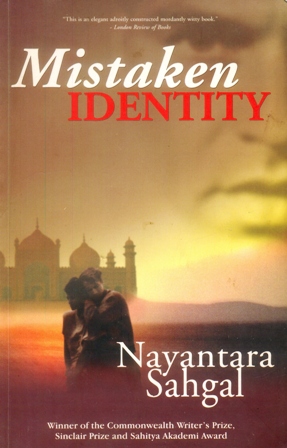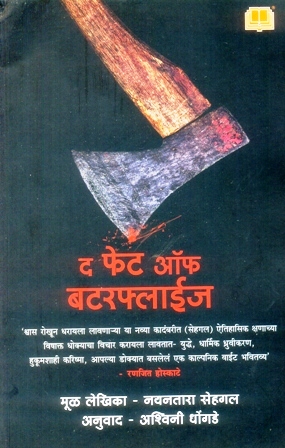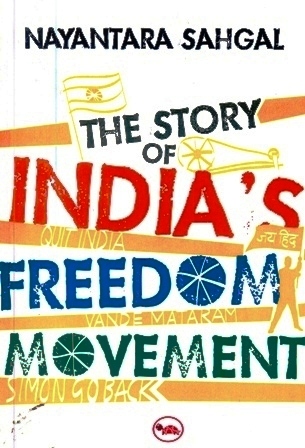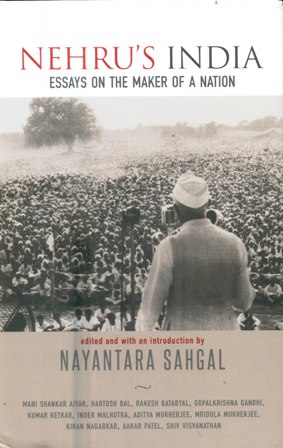-
Mistaken Identity
On a train journey home to north India after long months of travel abroad, the playboy Bhushan Singh, son of the Raja of Vijaygarh, is arrested and thrown into jail. Charged with treason, Bhushan finds himself in a filthy prison cell surrounded by elderly trade unionists as innocent of any political crime and a jittery government sees sedition under every stone. As they wait for the trial that never seems to come, Bhushan takes up the role of Scheherazade, enthralling his cellmates with stories from his colourful past. He tells them of his boyhood affair with a beautiful Muslim girl that sparked off two murderous riots and led to his banishment abroad. He tells them of his life in the America of the Roaring twenties, of basking beside a turquoise swimming pool, learning the Turkey Trot and turning down the chance of a career as a movie star. Full of mystery and gentle humour, Mistaken Identity is a story of love and obsession that brilliantly summons up the turmoil of India in the twilight years of empire.
-
The Story of India's Freedom Movement
When the people of India rose against oppression and inequality, they wrote one of history's most inspiring stories. India, the brightest jewel in the Raj crown was also a land burdened with harsh taxes, unjust laws and innumerable restrictions. When Indians, under the leadership of the most remarkable men and women ever to be born, decided to overturn the yoke of a foreign power, their struggle was one of extraordinary bravery, truthfulness and fortitude. The story of India's freedom movement is a unique tale of how the ordinar people of a country defeated the mightiest Empire in the world through the forces of satyagraha and ahimsa. In this masterful account, Nayantara Sahgal describes the twists and turns that led to this, the lives of the leaders, revolutionaries and masses, the horrors of oppression and the triumphs of the Indians as they finally made their tryst with destiny. A lucid telling by one of the country's finest writers, this account encompasses every important detail of the freedom struggle and will inform and inspire all young readers. Key Features A comprehensive narrative for young readers about the history of the freedom movement. A good resource for libraries and those working on school projects as i covers a wide range of topics related to the independence movement. Well designed text with illustrations and extra information in each chapter. This is one of the first few titles published under Red Turtle, Rupa's exclusive children's and young adult imprint and will have great marketing support.
-
Nehru's India
For much of the countrys post-Independence history, Indian politics was dominated by a single towering figure: Jawaharlal Nehru. A leading figure of the Independence movement, and Mahatma Gandhis chosen successor, Nehru, as Indias first prime minister, from 1947 until his death in 1964, was the architect of its birth as a modern nation-state, a sovereign, socialist, secular and democratic republic. In this volume, some of our foremost thinkers and writers examine the different aspects of Nehrus personality and his legacy.Nehrus influence stretched beyond the Freedom Movement and the political and bureaucratic boundaries of prime ministerhood. A man of letters, it was Nehru who initiated the setting up of the Sahitya Akademi devoted to literature, the National School of Drama and the National Institute of Design; just as, in the field of technology and business management, he established the Indian Institutes of Technology and the Indian Institutes of Management across the country. He was equally the force behind the setting up of dams and factories, which he regarded as the temples of modern India Today, in the year of his 125th birth anniversary, the four key dimensions of Indian nationhood, as conceived and implemented by Nehru democracy, secularism, socialism and non-alignment have altered to a point where they have changed almost beyond recognition or even abandoned altogether. To quote Mani Shankar Aiyar, What needs examination is whether fifty years after he [Nehru] passed away, these are still the defining parameters of Indias contemporary nationhood and, if so, how should they be interpreted in the light of present circumstances? As the debate continues between Nehrus supporters who believe in his enduring contribution, and his detractors who attempt to deny it, the definitive word, perhaps, comes from Nayantara Sahgal, who says in her Introduction, No Nehru, no modern India. The ground we stand on was laid in Nehrus time.




